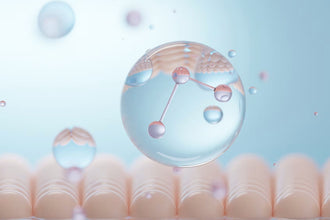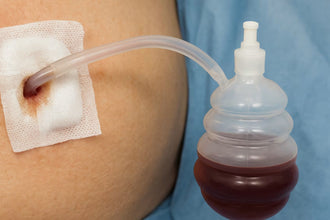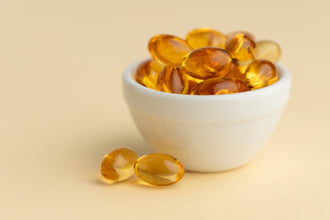
The Role of Hydration in Accelerating Surgical Recovery Times
Introduction
The journey to recovery following surgery involves a multifaceted approach, where hydration plays a pivotal yet often overlooked role. Adequate fluid intake is essential for optimal healing and recovery, impacting everything from cellular function to the efficacy of medications.
This article delves into the critical importance of hydration in post-operative care, offering insights into how maintaining fluid balance can significantly enhance recovery outcomes.
Understanding the Importance of Hydration in Healing
Post-surgery, the body undergoes an intensive healing process, requiring an array of nutrients and adequate hydration to support tissue repair and immune function. Hydration affects nearly every aspect of recovery, from maintaining blood volume for proper circulation to facilitating the transport of nutrients to wound sites.

Cellular Healing and Detoxification
Water is instrumental in cellular processes critical for healing, including:
- Cell proliferation: Water facilitates the movement of cells to the wound site, a process essential for tissue repair.
- Detoxification: Adequate hydration aids in flushing out toxins and waste products from the cells, preventing complications and promoting faster recovery.
Nutrient Absorption and Medication Efficacy
- Nutrient delivery: Water solubilizes vitamins and minerals, making them more accessible for absorption and use in healing tissues.
- Medication metabolism: Hydration ensures that medications are properly dissolved, absorbed, and metabolized, enhancing their effectiveness and reducing potential side effects.
Optimal Hydration Strategies for Surgical Recovery
While the importance of hydration is clear, achieving optimal hydration levels post-surgery can be challenging due to factors such as reduced thirst sensation, limitations on oral intake, and the body's increased fluid requirements during healing. Here are strategies to ensure adequate hydration during recovery:
-
Start with a Hydration Baseline: Begin by understanding your daily fluid needs, typically 30-35 ml/kg of body weight, adjusting for factors like age, activity level, and recovery stage.
-
Incorporate a Variety of Fluid Sources: While water is the best source of hydration, incorporating other fluids like broth, herbal teas, and electrolyte solutions can provide additional benefits and variety.

-
Monitor Hydration Indicators: Keep an eye on urine color (aim for pale yellow) and volume, as well as other signs of dehydration such as dry mouth, fatigue, and dizziness.
-
Schedule Fluid Intake: Setting reminders to take sips of water throughout the day can help achieve hydration goals, especially when normal thirst cues are disrupted.
| Strategy | Description | Benefit |
|---|---|---|
| Start with a Hydration Baseline | Understand daily fluid needs, typically 30-35 ml/kg of body weight. | Ensures individual hydration needs are met based on personal and recovery factors. |
| Incorporate a Variety of Fluid Sources | Use water, broth, herbal teas, and electrolyte solutions for hydration. | Provides hydration with added nutritional benefits and variety to encourage consistent fluid intake. |
| Monitor Hydration Indicators | Watch for signs of dehydration like urine color, dry mouth, fatigue, and dizziness. | Helps maintain adequate hydration levels and identifies when additional fluids are needed. |
| Schedule Fluid Intake | Set reminders to drink water throughout the day. | Prevents dehydration by encouraging regular fluid intake, especially important when normal thirst cues are disrupted. |

The Impact of Hydration on Specific Recovery Aspects
Hydration influences several key areas of post-surgical recovery:
- Wound healing: Proper hydration ensures that the skin and other tissues receive the blood flow and nutrients necessary for repair.
- Immune function: Adequate fluid levels support the immune system's ability to fend off infections.
- Physical therapy and mobility: Hydration helps maintain muscle elasticity and joint lubrication, facilitating easier movement and physical therapy progress.
| Recovery Aspect | Role of Hydration | Benefit |
|---|---|---|
| Wound Healing | Ensures tissues receive necessary blood flow and nutrients. | Facilitates quicker and more effective tissue repair. |
| Immune Function | Supports the immune system's ability to fend off infections. | Reduces the risk of post-surgical infections and complications. |
| Physical Therapy and Mobility | Maintains muscle elasticity and joint lubrication. | Enhances mobility, reduces discomfort during physical therapy, and aids in overall recovery efficiency. |
Conclusion
The role of hydration in surgical recovery is both fundamental and far-reaching, impacting everything from cellular repair to the effectiveness of rehabilitation efforts. By prioritizing hydration as a core component of post-operative care, patients can significantly enhance their recovery experience and outcomes.
Implementing strategic hydration practices not only supports the body's natural healing processes but also sets the stage for a smoother, more efficient return to health and well-being.
References:
https://www.ncbi.nlm.nih.gov/pmc/articles/PMC5707683/
https://www.ncbi.nlm.nih.gov/pmc/articles/PMC2908954/
https://www.ncbi.nlm.nih.gov/pmc/articles/PMC6723611/
General Disclaimer: All information here is for educational purposes only and is not meant to cure, heal, diagnose nor treat. This information must not be used as a replacement for medical advice, nor can the writer take any responsibility for anyone using the information instead of consulting a healthcare professional. All serious disease needs a physician.















